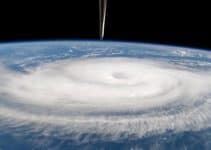We were wrong till date regarding one of the most crucial matters in our planet at present, and that is estimating ocean warming. According to scientists, oceans of the whole world are warming fast than previously estimated because the entire excess heat that got absorbed by the planet passed onto their waters and got stored.
As per the new analysis published in the journal Science, oceans are heating up 40% faster on an average breaking record for consecutive years several times than what was estimated five years before by a panel of United Nations. Oceans are working as the buffer for the planet by absorbing 93 percent of the heat that gets generated due to the GHG emissions produced by humans.
“If the ocean wasn’t absorbing as much heat, the surface of the land would heat up much faster than it is right now,” said Malin L. Pinsky, an associate professor in the department of ecology, evolution and natural resources at Rutgers University. “In fact, the ocean is saving us from massive warming right now.”
However, the tragedy is increasing water temperatures are destroying marine ecosystems, raising sea levels and generating more devastating hurricanes. We witnessed more catastrophic effects like Hurricane Harvey in 2017 and Hurricane Florence in 2018. Henceforth these will occur frequently, and coastlines will flood more frequently around the world.
Hundreds of millions of people in the tropics rely heavily on fish for protein and fish populations in coral reefs are sources of their food. Therefore, coral reefs will come under increasing stress in this situation as 1/5th of all corals have already died in the last three years. Deputy Chief Scientist for Oceana, the conservation group, Kathryn Matthews said “The actual ability of the warm oceans to produce food is much lower, so that means they’re going to be more quickly approaching food insecurity,”
Oceans are one of the most important research areas for climate scientists as these said to play a critical role in global warming. Average ocean temperatures consistently help to track the effects of GHG emissions because and they are not fluctuated by short-term patterns of weather. Zeke Hausfather, an energy systems analyst at the independent climate research group Berkeley Earth said: “Oceans are really the best thermometer we have for changes in the Earth.”
However, history says understanding temperatures of the ocean has been difficult. Intergovernmental Panel on Climate Change (IPCC) issued an authoritative United Nations report in 2014 on five different estimates of ocean heat. However, compared to the levels showed by computer climate models, these estimates were on the low side.
Earlier scientists measured ocean heat using temperature sensors or Argo, a network of drifting floats. However, the accuracy of those methods is questionable. Mr. Hausfather along with his colleagues assessed three recent studies in the new analysis to address earlier instrument biases.
A fourth study used a novel method to estimate ocean temperatures indirectly, and after the review by the researchers, they concluded that the oceans were heating faster than the 2014 study.
The authors revised their estimates downward to correct the error contained in the initial study, and the downward revisions of estimates were close to the new consensus.
“The correction made it agree a lot better with the other new observational records,” Mr. Hausfather said. “Previously it showed significantly more warming than anyone, and that was potentially worrisome because it meant our observational estimates might be problematic. Now their best estimate is pretty much dead-on with the other three recent studies.”
According to Lijing Cheng of the Institute of Atmospheric Physics in Beijing and the lead author of the new study, the waters near the surface have heated up the most, and over the last two decades that pushed warming to accelerate.
With the heat up of oceans, warmer water takes up more space compared to colder water, and till date maximum number of times, the sea level noticed to rise due to this warming effect. By 2100, the warming would cause the rise of sea level by about a foot, and in addition, melting of the ice caps could aggravate damages from severe coastal flooding and destructive storm surge.
An Associate Professor of Climate Physics at the prestigious Oxford University, Laure Zanna published a study this week and said: “we are warming the planet, but the ocean is not warming evenly, so different places warm more than others.” Dr. Zanna also stated, “And so the first consequence will be that sea level will be different in different places depending on the warming.”
New findings presented a grim forecast for the future oceans although Mr. Hausfather is hopeful that our efforts to mitigate global warming would help including the 2015 Paris climate agreement. “I think there’s some reason for confidence that we’ll avoid the worst-case outcomes,” he said, “even if we’re not on track for the outcomes we want.”






